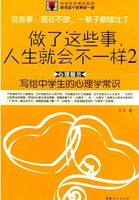HOW CENTRAL EUROPE, ATTACKED FROM
THREE SIDES, BECAME AN ARMED CAMP AND WHY EUROPE WOULD HAVE PERISHED WITHOUT THOSE PROFESSIONAL SOLDIERS AND ADMINISTRATORS WHO WERE PART OF THE FEUDAL SYSTEM.
THE following, then, is the state of Europe in the year one thousand, when most people were so unhappy that they welcomed the prophecy foretelling the approaching end of the world and rushed to the monasteries, that the Day of Judgement might find them engaged upon devout duties.
At an unknown date, the Germanic tribes had left their old home in Asia and had moved westward into Europe. By sheer pressure of numbers they had forced their way into the Roman Empire. They had destroyed the great western empire, but the eastern part, being off the main route of the great migrations, had managed to survive and feebly continued the traditions of Rome's ancient glory.
During the days of disorder which had followed, (the true "dark ages" of history, the sixth and seventh centuries of our era,) the German tribes had been persuaded to accept the Christian religion and had recognised the Bishop of Rome as the Pope or spiritual head of the world. In the ninth century, the organising genius of Charlemagne had revived the Roman Empire and had united the greater part of western Europe into a single state. During the tenth century this empire had gone to pieces. The western part had become a separate kingdom, France. The eastern half was known as the Holy Roman Empire of the German nation, and the rulers of this federation of states then pretended that they were the direct heirs of Caesar and Augustus.
Unfortunately the power of the kings of France did not stretch beyond the moat of their royal residence, while the Holy Roman Emperor was openly defied by his powerful subjects whenever it suited their fancy or their profit.
To increase the misery of the masses of the people, the triangle of western Europe (look at page 128, please) was for ever exposed to attacks from three sides. On the south lived the ever dangerous Mohammedans. The western coast was ravaged by the Northmen. The eastern frontier (defenceless except for the short stretch of the Carpathian mountains) was at the mercy of hordes of Huns, Hungarians, Slavs and Tartars.
The peace of Rome was a thing of the remote past, a dream of the "Good Old Days" that were gone for ever. It was a question of "fight or die," and quite naturally people preferred to fight. Forced by circumstances, Europe became an armed camp and there was a demand for strong leadership. Both King and Emperor were far away. The frontiersmen (and most of Europe in the year 1000 was "frontier") must help themselves. They willingly submitted to the representatives of the king who were sent to administer the outlying districts, PROVIDED THEY COULD PROTECT THEM AGAINST THEIR ENEMIES.
Soon central Europe was dotted with small principalities, each one ruled by a duke or a count or a baron or a bishop, as the case might be, and organised as a fighting unit. These dukes and counts and barons had sworn to be faithful to the king who had given them their "feudum" (hence our word "feudal,") in return for their loyal services and a certain amount of taxes. But travel in those days was slow and the means of communication were exceedingly poor. The royal or imperial administrators therefore enjoyed great independence, and within the boundaries of their own province they assumed most of the rights which in truth belonged to the king.
But you would make a mistake if you supposed that the people of the eleventh century objected to this form of government. They supported Feudalism because it was a very practical and necessary institution. Their Lord and Master usually lived in a big stone house erected on the top of a steep rock or built between deep moats, but within sight of his subjects. In case of danger the subjects found shelter behind the walls of the baronial stronghold. That is why they tried to live as near the castle as possible and it accounts for the many European cities which began their career around a feudal fortress.
But the knight of the early middle ages was much more than a professional soldier. He was the civil servant of that day. He was the judge of his community and he was the chief of police. He caught the highwaymen and protected the wandering pedlars who were the merchants of the eleventh century. He looked after the dikes so that the countryside should not be flooded (just as the first noblemen had done in the valley of the Nile four thousand years before). He encouraged the Troubadours who wandered from place to place telling the stories of the ancient heroes who had fought in the great wars of the migrations. Besides, he protected the churches and the monasteries within his territory, and although he could neither read nor write, (it was considered unmanly to know such things,) he employed a number of priests who kept his accounts and who registered the marriages and the births and the deaths which occurred within the baronial or ducal domains.
In the fifteenth century the kings once more became strong enough to exercise those powers which belonged to them because they were "anointed of God." Then the feudal knights lost their former independence. Reduced to the rank of country squires, they no longer filled a need and soon they became a nuisance. But Europe would have perished without the "feudal system" of the dark ages. There were many bad knights as there are many bad people to-day. But generally speaking, the rough-fisted barons of the twelfth and thirteenth century were hard-working administrators who rendered a most useful service to the cause of progress. During that era the noble torch of learning and art which had illuminated the world of the Egyptians and the Greeks and the Romans was burning very low. Without the knights and their good friends, the monks, civilisation would have been extinguished entirely, and the human race would have been forced to begin once more where the cave-man had left off.















